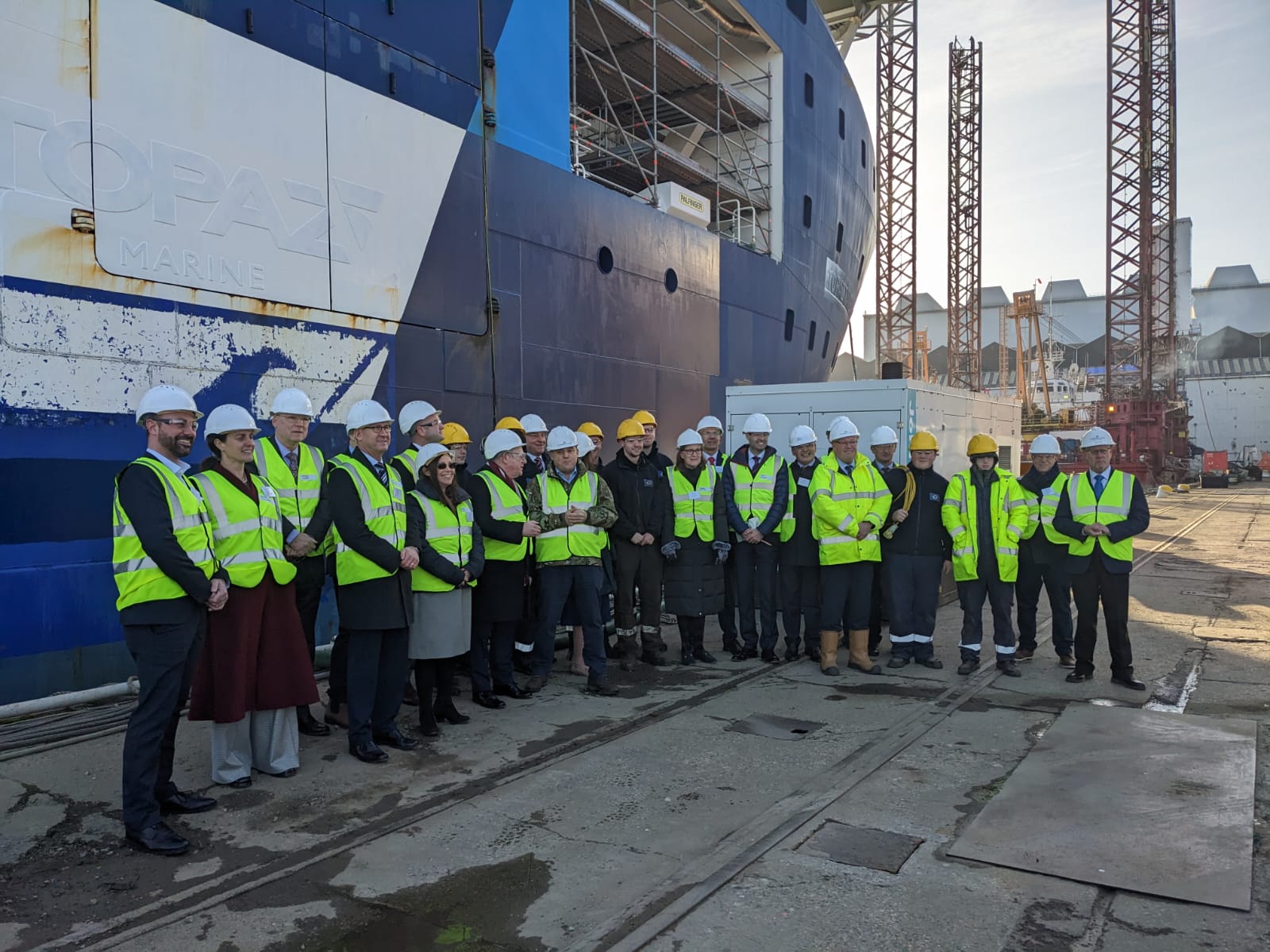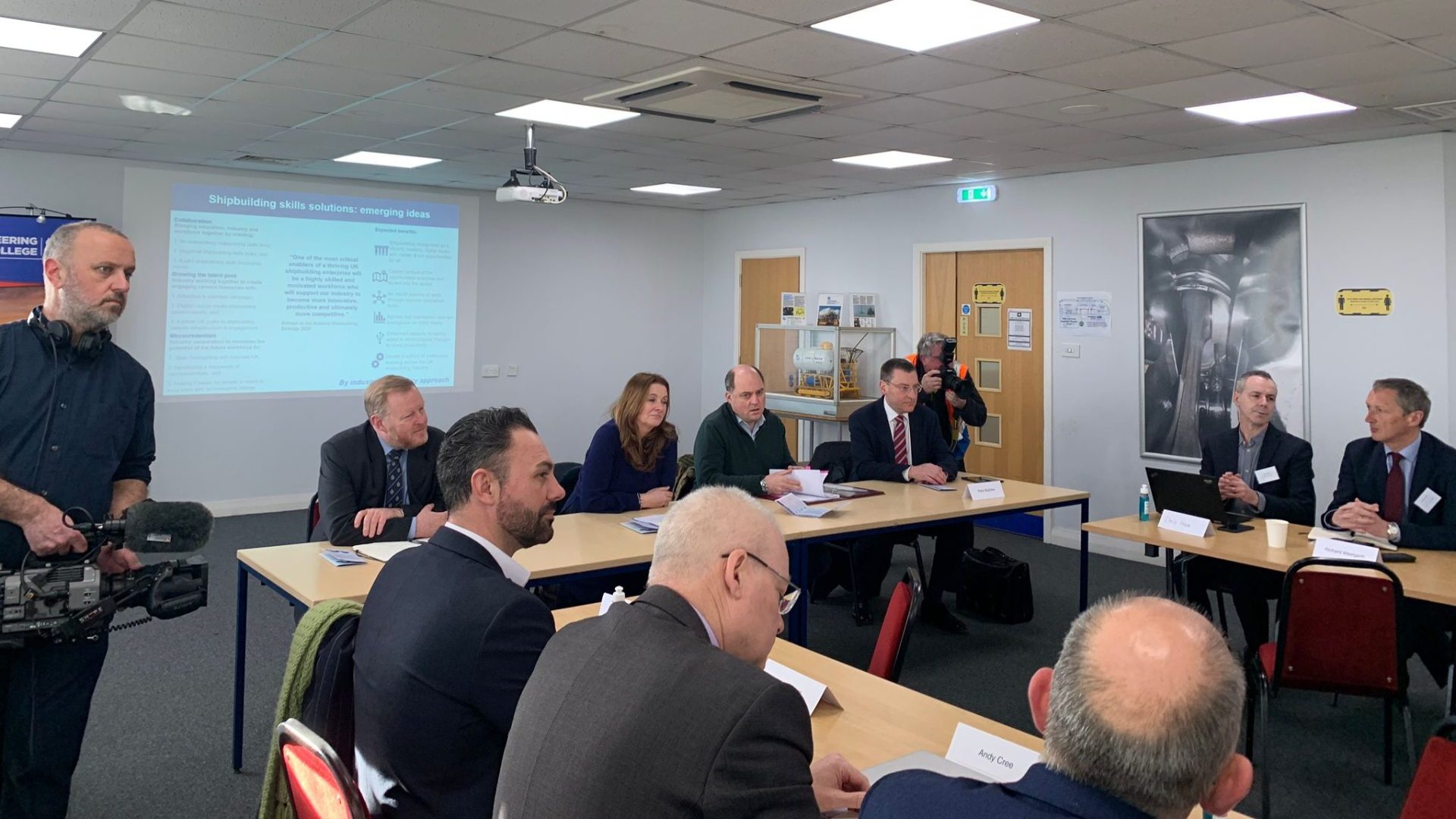9th February 2023
South Devon College’s Head of Curriculum for Technology, Adrian Bevin, has joined the government-driven UK Shipbuilding Skills Taskforce (UKSST).
The UKSST will develop and implement a skills strategy for shipbuilding in the UK to ensure the UK’s shipbuilding industry has a skilled workforce.
The taskforce will work across government and with the shipbuilding industry to:
- identify the skills needed and provide solutions to skills shortages, particularly those related to new and emerging technologies
- ensure that shipbuilders and the supply chain in all parts of the UK can access the skills they need
- use the existing skills system so training providers can train the future workforce
- draw on best practice from other sectors and national skills approaches to optimise skills funding and opportunities for shipbuilding
- promote training funding and career opportunities in the shipbuilding sector
The taskforce was launched in July 2022 and will conclude in December 2023. It will produce a set of recommendations for the Department for Education and the National Shipbuilding Office to review by the end of June 2023. During the final 6 months the taskforce will begin to implement the agreed actions, and will work with government to identify routes for continuation of this work beyond that point.

After a recent meeting with the UKSST, Adrian has provided an update on where the taskforce is in their strategy:
There is no better time than National Apprenticeships week, with the theme of ‘Skills for Life’, to share what I have been doing as a member of the UK Shipbuilding Skills Taskforce.
As a workstream lead for best practice, during the discovery phase of the Taskforce, it has been incredible to explore the amazing work that already exists within the wider shipbuilding sector. One of our goals is to build upon this best practice, ensuring a sustainable pipeline of new talent can be attracted to this industry.
There is a lot of anticipation surrounding the Taskforce work, which is very solutions focused, and I encourage you to share your views. Sign up to receive updates by joining our mailing list to find out more about our conclusions and recommendations.
The UKSST objective is to build a picture of the shipbuilding industry’s skills needs and make recommendations for how to resolve shortages, particularly those related to new and emerging technologies. This will support achievement of the National Shipbuilding Strategy Refresh aims of reducing skills shortfalls by 35% by 2027 and 50% by 2030. You can find our Terms of Reference, list of Taskforce members and past meeting readouts on our information page.
Our approach
We have approached our task by splitting our work into three distinct phases, with each stage being approximately 6 months in duration.
During the discovery phase the Taskforce focus was upon:
- Establishing current state.
- Drawing together a baseline of the known knowns and the known unknowns.
- Establishing a baseline of capacity and capability.
- Creating a gap analysis for upskilling and reskilling.
During the prioritisation phase (which is now underway) the Taskforce will:
- Agree desired future state and prioritised recommendations.
- Identify the prioritised solutions (government / policy / industry).
- Consider enablers and limitations in all four nations of the UK.
- Consult with wider sector.
During the engagement phase the Taskforce will:
- Begin implementation.
- Secure sectoral governance buy-in.
- Verify and scale up.
- Promote best practice.
- Increase visibility of shipbuilding careers.
- Optimise skills funding and infrastructure.
- Advocate to wider sector.

Our findings so far
The Taskforce has now concluded the discovery phase, where the focus was on building a baseline understanding of current and long-term shipbuilding skills needs across the UK, identifying areas of focus as we progress into the prioritisation phase.
The key qualitative findings across the Discovery Phase workstreams last year were:
- It is challenging to produce an agreed picture of the sector’s skills needs. There is a 30% range depending on whether you apply an opportunistic or pessimistic view, but we have a working understanding of the broad skills needs and gaps across the sector.
- Future skills requirements will likely be different, driven by technological advancements.
- Good practice exists in other sectors like cyber, rail and wider manufacturing, and some of the challenges within the Shipbuilding sector are similar to the challenges these sectors face. We also know that Shipbuilding skills are part of a wider manufacturing / engineering skills ecosystem.
- We need to do more to encourage people to join the Shipbuilding sector, including promoting it within maritime, and influence people earlier in the education journey.
- Through the Taskforce, we have seen strong, strategic collaboration across the sector, which we should find a way to sustain after the Taskforce has concluded its work.






